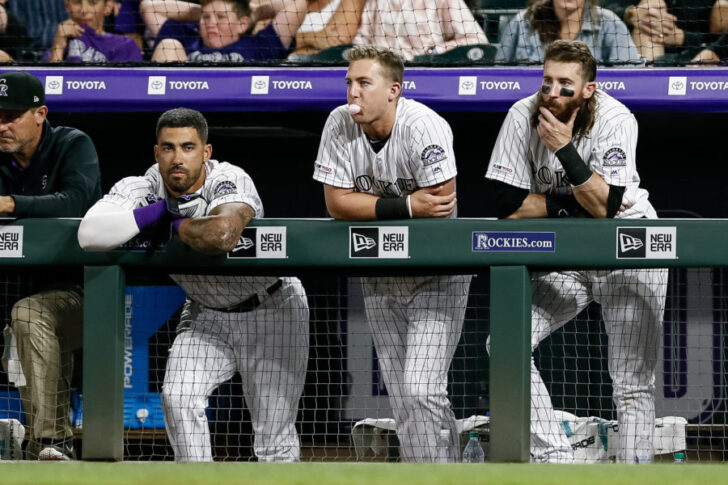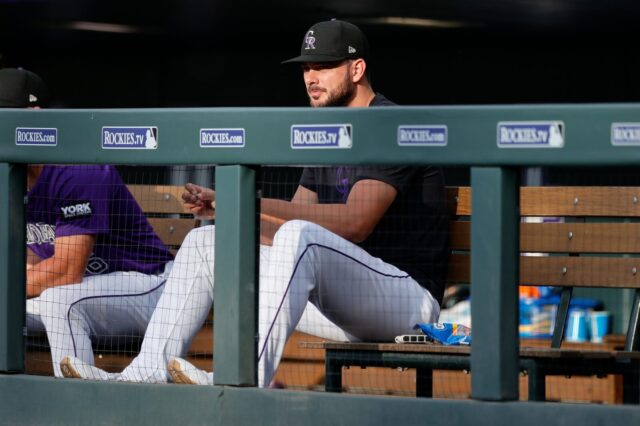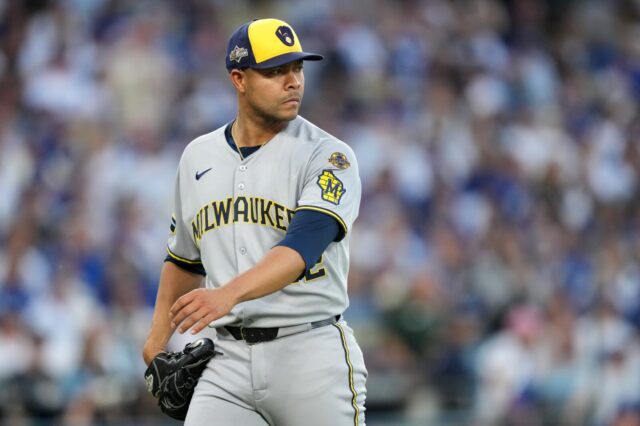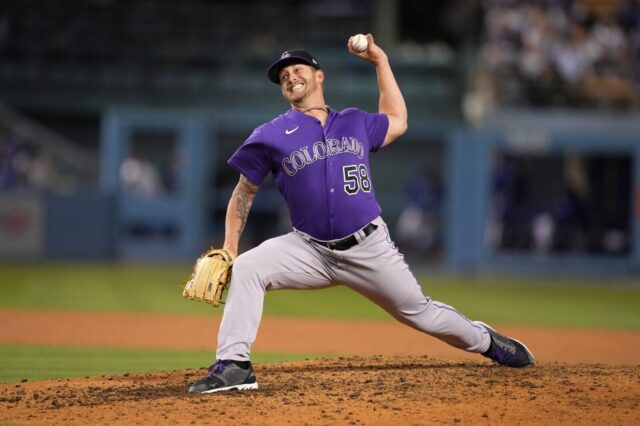The Colorado Rockies are sticking with their agenda this offseason of not spending big in free agency.
When the 2019 season concluded, the Rockies’ brass proclaimed their hands were financially tied after spending the previous offseason and after signing Nolan Arenado to a monster eight-year contract worth a total of $260 million.
“We don’t have a lot of flexibility next year,” Owner Dick Monfort said via Nick Groke of The Athletic at the start of the offseason.
This has proved to be accurate as Colorado is just one of three clubs around the league to have not invested a single dime into their major league talent pool.
Free agent spending* stragglers this winter:
Cubs: $0
Pirates: $0
Rockies: $0
Mariners: $2.95M
Orioles: $3M
Royals: $3.6M
Indians: $6.25M
A's: $7.5M
Giants: $9M
Red Sox: $9M
Dodgers: $10M
Rays: $12M
Cardinals: $13M
Astros: $15M* Counts major league contracts, not split deals
— Jeff Passan (@JeffPassan) January 6, 2020
The Rockies currently have $148,333,333 million on the books for the 2020 season, which is the 11th highest payroll in baseball. Colorado was aggressive within the free-agent market leading up to the 2017 and 2018 seasons and have seen their payroll increase by upwards of $40 million since 2016.
That said, it appears the Rockies have reached a threshold financially which will undoubtedly hinder their ability to acquire talent in the coming season.
The fact that the team has been unwilling to improve their roster externally this offseason has been a real bummer for Rockies’ fans. After making the postseason in back-to-back years in 2017 and 2018, there was a legitimate buzz around the Mile High City when talking about the Rockies as they made their climb back to relevancy.
However, the team fell well short of expectations in 2019 and now the organization seems content with rolling the dice on their internal talent in 2020 as opposed to addressing their issues in free agency or via trade.
Colorado dipped their toes into the free-agent market when they signed Daniel Murphy, Ian Desmond, Jake McGee, Bryan Shaw, Wade Davis, and Mike Dunn. The problem is, the majority of those signings have backfired and the Rockies have been unwilling to correct their deficiencies because of the money already committed to the players currently on their roster.
This offseason, the Rockies’ most significant move was extending Scott Oberg. Oberg was Colorado’s best relief pitcher last season, but he is coming off an injury that ended his 2019 season prematurely.
Aside from extending Oberg, the Rockies have signed a slew of players to minor league deals with invitations to spring training; most recently catcher Elias Diaz and infielder Kelby Tomlinson.
The only relevant news surrounding the Rockies this offseason has been speculation that they will trade Arenado this offseason or at some point in the near future.
Passan reaffirms that industry executives believe, “someone in the Betts/Francisco Lindor/Kris Bryant/Nolan Arenado superstar grab bag is moving before spring training.”
Passan then caps off his report by revealing that the two teams who appease the Rockies in a trade involving Arenado are the Chicago Cubs and St. Louis Cardinals.
As spring training approaches, the Rockies are prepared to enter the season with virtually the same roster that they finished 2019 with. The unfortunate reality of the situation is the Rockies are pinning their hopes on getting lucky moving forward, as evidenced by their spending this offseason.
Shedding salary is not uncommon for MLB clubs, but for the Rockies to change course so drastically just one season removed from the postseason is frustrating to say the least.



